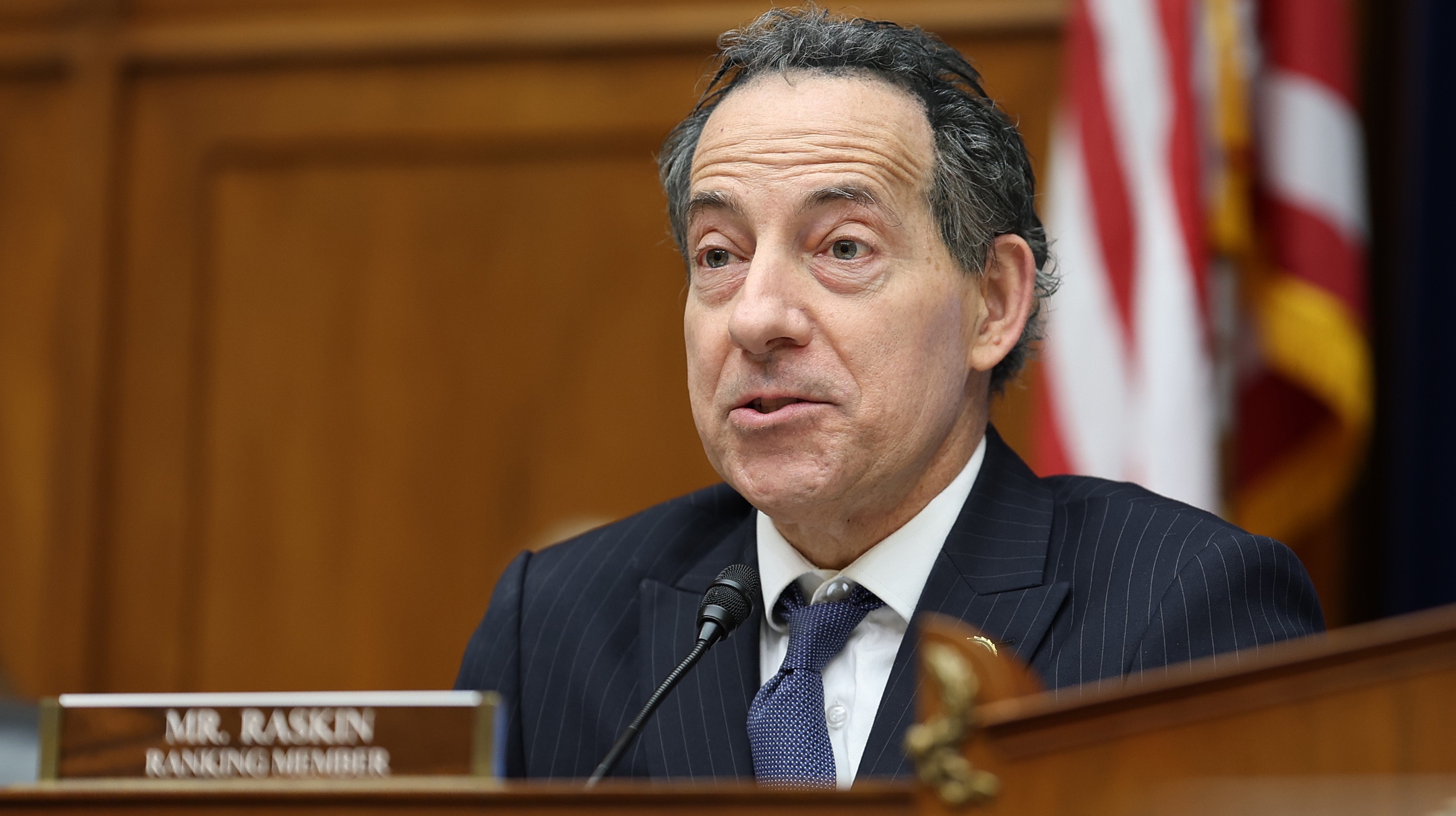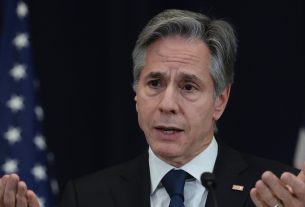WASHINGTON — There are 34 Jews in the incoming Congress, with a 35th likely to join in April.
Should that candidate, Florida State Sen. Randy Fine, win his special election in Florida, that would mean no change in numbers overall between the outgoing Congress and the incoming one: The House Jewish delegation will drop from 26 to 25, but the number of Jewish senators will increase from nine to a minyan.
Dig a little deeper, though, and there are some changes — both in terms of new challenges and new opportunities for the Jewish class of the 119th Congress. Here’s a look at what to expect.
Jewish Republicans (likely) double their caucus
Ohio Rep. Max Miller and Tennessee Rep. David Kustoff will be joined by Craig Goldman of Texas, increasing the Republican caucus by 50% as of Jan. 3.
Fine, an outspoken right-winger who has made defending Jewish interests a centerpiece of his campaigning despite the small Jewish population in his district, Florida’s 6th, would double the representation to four.
That’s the largest number of Jewish Republicans in the House — and in Congress overall — since the 1990s. It reflects a newly assertive Jewish movement in the GOP, which portrays their party as a stronger advocate of Israel and Jewish interests, and points to gains, albeit small ones, in the Jewish vote for president.
Trump urged Fine to run after picking Michael Waltz, who currently represents the district, to lead the National Security Council. It was quite a shift for Fine, who claims he had been prepared to move his family to Israel had Vice President Kamala Harris won the presidency.
Goldman, a realtor, is a more traditional Republican. In pledging to maintain the internationalist policies of his predecessor, Kay Granger, who is retiring, he also represents where most Jews in the party have been historically. That differentiates him from Trump and his acolytes, including Vice President-elect J.D. Vance, who favor a more insular United States.
Two new Jewish Democrats in the House
Laura Friedman is stepping into Adam Schiff’s Los Angeles area 30th District seat as he moves to the Senate.
Friedman, an assemblywoman who was a leading member of the robust Jewish caucus in California’s legislature told Jewish Insider in March that she will hew to Schiff’s mainstream pro-Israel outlook. Both she and Schiff came under fire from pro-Palestinian progressives during their campaigns.
Eugene Vindman, the incoming freshman from Virginia’s 7th District, stretching from the Washington, D.C. suburbs down toward Richmond, is one of a pair of twin brothers who helped expose the telephone call between Trump and Ukrainian President Volodymyr Zelensky that led to Trump’s first impeachment in early 2020. Before winning his race, Vindman had served in the military and on the National Security Council.
First-term congressmen don’t usually get a lot of attention, but that may not be the case for Vindman. Trump has vowed retribution against the Democrats who impeached him and exposed his role in the violent pro-Trump Jan. 6, 2021, riot in the U.S. Capitol — a list that could include the freshman rep.
Rep. Adam Schiff talks to the media after voting at McCambridge Recreation Center in Burbank in the race for U.S. Senate that he ultimately won, Nov. 5, 2024. (Hans Gutknecht, Los Angeles Daily News/SCNG)
Adam Schiff — upholding the law, Jewishly
Speaking of Trump and retribution, the president-elect has named the freshman California senator as a target — and said he wants to see him in jail. Schiff not only led Trump’s first impeachment, he co-chaired the inquiry into the Jan. 6 events.
Schiff has said his focus will be first and foremost on California, but he has no illusions that he will avoid the crosshairs of the president-elect and his allies. He recently told the Jewish Telegraphic Agency that he fears for the fragility of U.S. democracy.
Schiff, who began his career as a prosecutor, casts his concerns for democracy and the place of Jews in America as part of the same mission. Not for nothing, he chose to be sworn in this week on the Mishneh Torah, the monumental code of Jewish law by the medieval sage Maimonides.
A changing of the guard at the House Judiciary Committee
New York’s Jerry Nadler got the message this month when someone leaked to the New York Times that Maryland’s Jamie Raskin was seeking to displace him as the top Democrat on the Judiciary Committee: He volunteered to step down, reportedly reluctantly.
The two have plenty in common, aside from being Jewish: Nadler was Schiff’s second-in-command at Trump’s first impeachment hearings and Raskin helped lead the second impeachment, over Trump’s role in spurring the Jan. 6 riot. They both have deep Jewish communal roots, with Raskin for years championing Israeli-Palestinian dialogue, and Nadler a product of a yeshiva education.
They also are among the pro-Israel Democrats who are still more most trenchantly critical of the government of Israeli Prime Minister Benjamin Netanyahu. They joined a letter last month calling on the lame-duck Biden administration to sanction two far-right ministers in Netanyahu’s government, Bezalel Smotrich and Itamar Ben-Gvir.
When Netanyahu addressed Congress in July, Nadler walked in carrying a hypercritical biography of the prime minister, and read it while waiting for him to speak.
But Nadler, at 77, is also well over a decade older than Raskin, 61, reportedly one of the driving factors behind the switch. Nadler is the longest serving Jewish member in Congress.
Two Senate leaders in the minority
Bernie Sanders was handily reelected in this year’s Vermont Senate contest, even though he will be 89 when he completes his term. The unofficial leader of congressional progressives, Sanders has said he is still ready to work with the Trump administration on nuts-and-bolts economic issues like credit card debt reform.
He also is spearheading efforts to cut defense assistance to Israel. That quest likely will go nowhere with a Republican sweep of the White House and both chambers of Congress, but it is a sign of how entrenched skepticism of Israel funding has become among progressives.
And as of Jan. 3, New York’s Chuck Schumer will continue to lead Democrats in the chamber — but will relinquish the title that made him the most senior Jewish elected official in American history. South Dakota’s John Thune, a Republican, is replacing Schumer as majority leader.
Schumer may have also missed his chance to pass the Antisemitism Awareness Act, which would codify into law a popular but controversial definition of antisemitism. Supporters say the definition, commonly known as the IHRA definition, provides a guide to how antisemitism manifests today. Critics say it is overly broad in how it is applied to criticism of Israel, and could chill legitimate political speech. Schumer wanted to attach the act to a must-pass defense budget bill, but House Speaker Mike Johnson declined.
Here are the Jews incoming to the new Congress, minus Randy Fine, whose April 1 election appears all but guaranteed.
U.S. House of Representatives
Laura Friedman, D, California 30
Brad Sherman, D, California 32
Mike Levin, D, California 49
Sara Jacobs, D, California 51
Lois Frankel, D, Florida 22
Jared Moskowitz, D, Florida 23
Debbie Wasserman Schultz, D, Florida 25
Jan Schakowsky, D, Illinois 9
Brad Schneider, D, Illinois 10
Jamie Raskin, D, Maryland 8
Jake Auchincloss, D, Massachusetts 4
Josh Gottheimer, D, New Jersey 5
Dan Goldman, D, New York 10
Jerry Nadler, D, New York 12
Greg Landsman, D, Ohio 1
Max Miller, R, Ohio 7
Suzanne Bonamici, D, Oregon 1
Seth Magaziner, D, Rhode Island 2
David Kustoff, R, Tennessee 8
Steve Cohen, D, Tennessee 9
Craig Goldman, R, Texas 12
Becca Balint, D, Vermont at large
Eugene Vindman, D, Virginia 7
Kin Schrier, D, Washington 8
U.S. Senate
(Elected this cycle)
Adam Schiff, D, California
Elissa Slotkin, D, Michigan
Jacky Rosen, D, Nevada
Bernie Sanders, Independent, caucuses with Democrats, Vermont
(Elected previous cycles)
Michael Bennet, D, Colorado
Richard Blumenthal, D, Connecticut
Jon Ossoff, D, Georgia
Brian Schatz, D, Hawaii
Chuck Schumer, D, New York
Ron Wyden, D, Oregon




